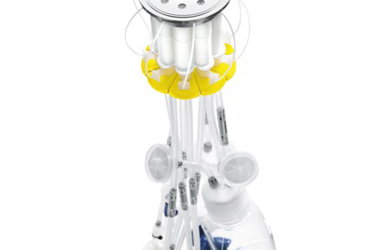The Importance Of Aseptic Sampling Devices In A Bioburden Reduction Strategy
By Charles Meadows and Bobbi Allen, Sartorius Stedim North America Inc.

Microbial control is mandatory for all sterile drug manufacturers. Bioburden reduction represents a significant proportion of risk mitigation efforts. The Parenteral Drug Association released Technical Report No. 69: Bioburden and Biofilm Management in Pharmaceutical Operations. It provides background on the causes and control strategies of bioburden in pharmaceutical production processes, as well as the risks of biofilm, the challenges of removing it, and actions to help reduce the incidence of biofilm formation.
PDA Technical Report No. 69 strongly suggests the use of aseptic | sterile sampling devices. Alternative sampling methods can lead to false positive-results, and contribute to process fouling by bioburden and biofilm formation.
Aseptic sampling devices are typically offered in two forms:
1) a single-use and preassembled device and 2) reusable devices with single-use sampling lines. The supplier sterilizes the assembled device or sampling lines, usually by gamma irradiation. The external product-contact surfaces of the device are sterilized by the routine steam-inplace (SIP) conducted on the process vessel after the aseptic sampling device has been connected.
The device performs aseptically, meaning that before, during, and after sampling, external contaminants are not introduced to the process vessel or to the sample itself. It is not necessary to sterilize between sampling events, making sample collection quick and simple.
This paper delves deeper into aseptic sampling devices to explain how they offer exceptional performance in the effort to control contamination.
Get unlimited access to:
Enter your credentials below to log in. Not yet a member of Pharmaceutical Online? Subscribe today.
